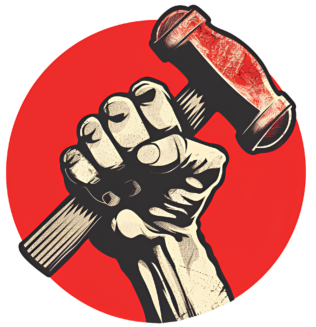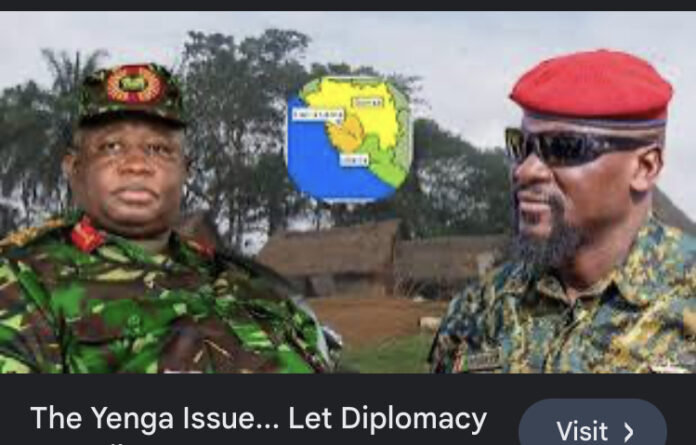By: Samuel Karim
26th May 2025
The persistent occupation of Yenga a strategic border town in the eastern Kailahun District by Guinean military forces has sparked growing concern across Sierra Leone. Many citizens, opposition figures, and civil society actors have raised alarm over President Julius Maada Bio’s continued silence and perceived inaction on the matter. The situation raises critical constitutional, political, and national security questions, particularly regarding the President’s sworn duty to protect Sierra Leone’s territorial integrity and uphold the 1991 Constitution. This article critically examines the Yenga issue in light of constitutional obligations, national sovereignty, and potential political consequences.
Historical Context of the Yenga Dispute
Yenga became a point of contention during Sierra Leone’s civil war (1991–2002) when Guinean forces, under the banner of the regional ECOMOG peacekeeping mission, were allowed to assist in counter-insurgency operations. Following the war’s end, however, Guinea continued to maintain military presence in the town, citing security concerns and border ambiguity. Despite various bilateral negotiations, including public commitments by both countries to resolve the matter amicably, the issue remains unresolved over two decades later.
Constitutional Mandate and Presidential Responsibility
The 1991 Constitution of Sierra Leone, Section 40(3), mandates the President as “Commander-in-Chief of the Armed Forces” and the “Guardian of the Constitution”, responsible for “ensuring the territorial integrity and sovereignty of the Republic.” President Bio’s silence and failure to publicly address the Yenga occupation, despite ample opportunity to do so since taking office in 2018, raises legitimate questions about whether he is in breach of this constitutional obligation.
This perceived inaction is not merely symbolic; it may constitute a dereliction of duty if it can be established that the President has not undertaken sufficient efforts, either diplomatically or militarily, to reassert sovereignty over Yenga. Critics argue that national silence on territorial issues can be interpreted as acquiescence or weakness damaging the country’s international image and emboldening encroachment.
Impeachment: A Constitutional Remedy or Political Overreach?
Calls for impeachment such as those implied in the title of this debatemust be grounded in both legality and prudence. Section 51 of the Constitution allows for the removal of a President on the grounds of “gross misconduct or violation of the Constitution.” If a strong legal case can be made that the President’s failure to act on Yenga amounts to a gross neglect of constitutional duties, impeachment becomes a constitutional option.
However, impeachment is also a deeply political process. It requires not only legal justification but also a parliamentary majority and public support. While the opposition may argue that Bio’s silence represents betrayal, supporters may counter that diplomacy and strategic patience are necessary to avoid conflict with a neighboring state. As such, the impeachment route, though constitutionally valid, is unlikely to gain traction without broader political consensus.
Alternative Interpretations: Strategic Diplomacy or Weak Leadership?
Defenders of President Bio may argue that diplomacy is ongoing and that sensitive territorial disputes cannot always be resolved through public statements or aggressive posturing. They might cite previous joint border commissions, ECOWAS mediation efforts, and bilateral discussions as evidence that the issue is being handled quietly to avoid escalation.
However, diplomacy does not justify total silence especially not to the people of Sierra Leone. A lack of transparency, even amid sensitive negotiations, feeds speculation, resentment, and mistrust. A national address or policy clarification would be a minimum expectation from a head of state committed to constitutional governance.
Conclusion: A Leadership Test and Constitutional Crisis in the Making
The ongoing occupation of Yenga by Guinean forces is more than a border dispute it is a test of Sierra Leone’s constitutional leadership, national pride, and the strength of its democratic institutions. President Bio’s silence risks being interpreted as constitutional betrayal by a growing number of Sierra Leoneans.
While impeachment is a drastic remedy, the matter deserves urgent parliamentary inquiry, national debate, and executive transparency. The sovereignty of Sierra Leone cannot be compromised by diplomatic inertia or political expediency. The time for action whether through public diplomacy, legal assertion, or regional pressure is now.
Failure to act decisively on Yenga will not only define President Bio’s legacy but may also set a dangerous precedent for the erosion of national sovereignty in Sierra Leone.


